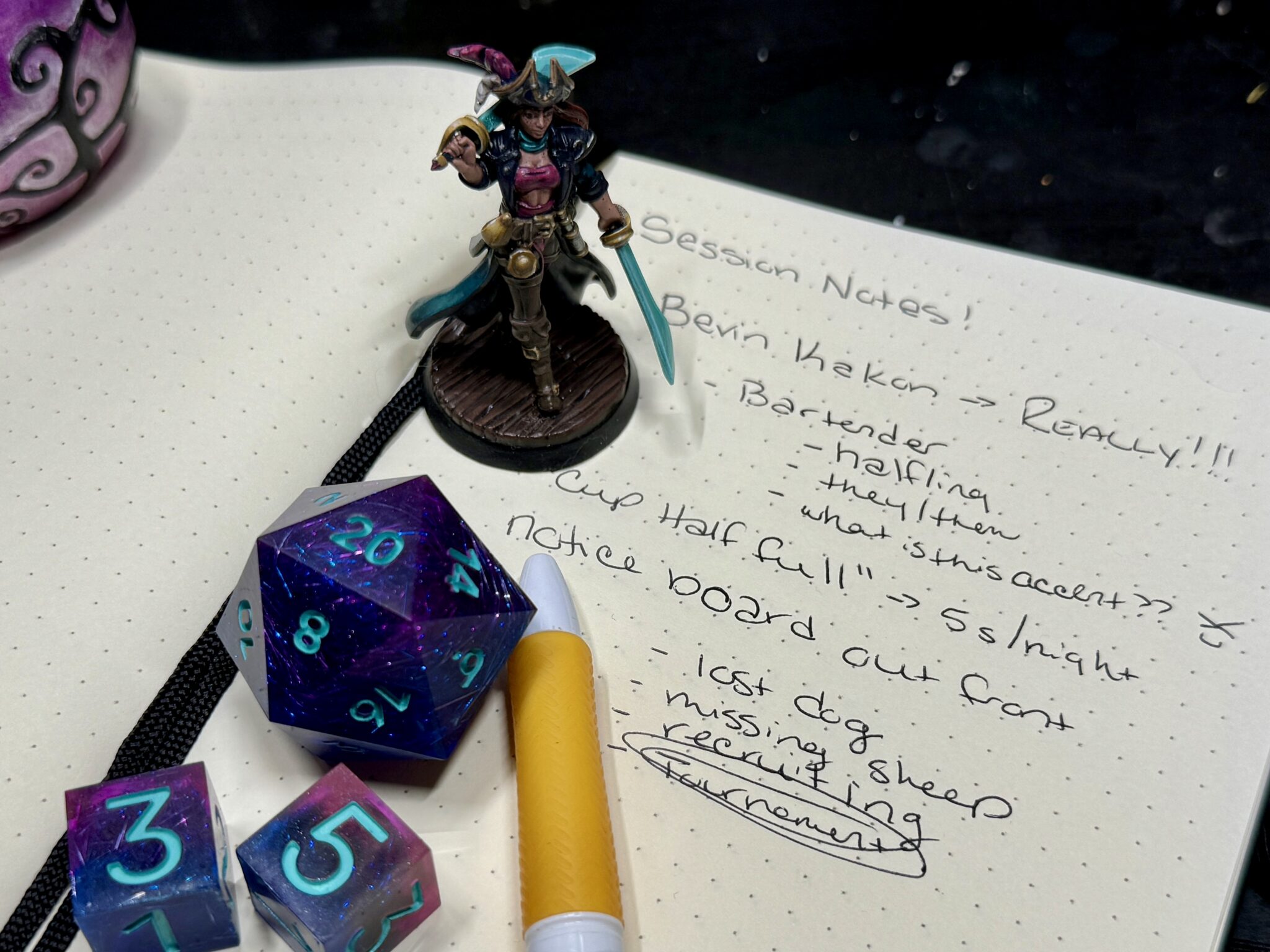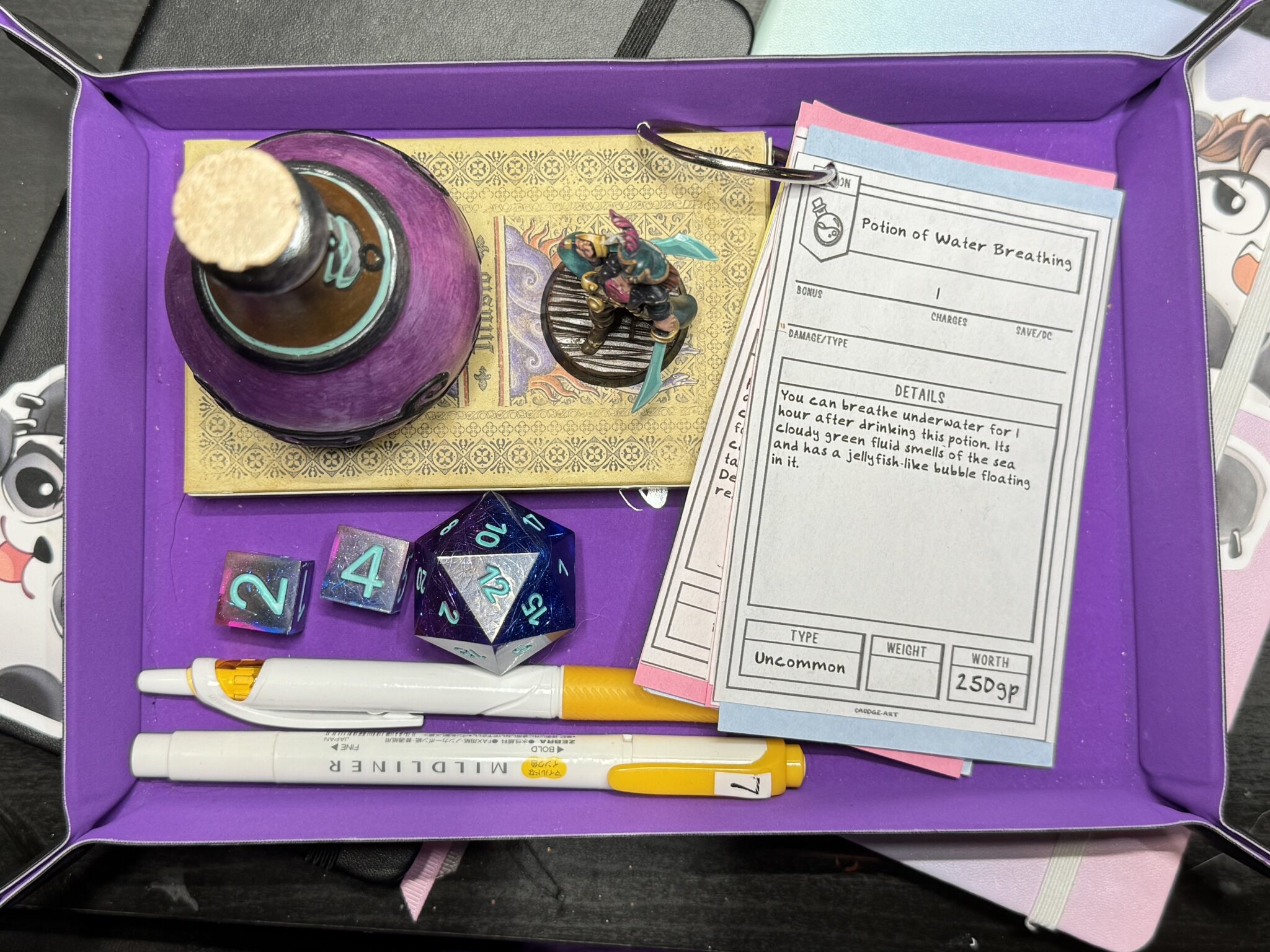
Critique-al Hit: No Wrong Way to TTRPG
During a recent chat amongst a few mini painters, a comment was made asking if there was a rule or perhaps an item in Fifth Edition Dungeons & Dragons that would allow someone to change their class’s core abilities. My answer was for them to talk to their DM about just changing it. It caused a stir with everyone discussing rules and how they are written, confusion at the table, and potentially breaking the game. My response again was, talk to your DM, there is no wrong way to play DnD.
TTRPGs are supposed to be fun for everyone at a table. What that looks like may change from table to table, but everyone should be having a good time.
For some people, fun is a long drawn-out grind of a game with constant dungeon crawls, crunchy rules, and heavy combat. For others, it may be all about silly role-play and simple rules. Every game is different, but to find enjoyment communication is key.
The most important part is to go into any game with an open mind and at least a partial grasp of the game system you’ll be using. Games that use The AGE System are going to play much different than those using Powered by the Apocalypse or Dungeons & Dragons. Knowing the game system you want to use is important.
Safety tools are another huge part of making sure everyone is going to have a good time. Safe tools, especially a session zero, are imperative to set the tone for a game. During Session Zero the entire tone for the game should be set. You should walk away knowing everyone’s level of comfort with sensitive topics, the type of game everyone is looking to play, the rules for the table, and a general feel for the campaign as a whole.
Session Zero is a great time to ask the person running the game about any ideas you may have for your character and how you want to play them. Someone new to running games may not be open to making massive changes to a certain class or set of rules. Some people just like to only play rules as written, but many will be open to ideas. You can even make changes during the game.

That brings us back to the conversation among the painters. One person was asking how they could find a way to be an Intelligence-based Paladin in DnD 5e as opposed to a Charisma-based one. It’s pretty simple, talk to the DM. Any person well-versed in a game should be open to making changes. If you have a reason to change something major about your character, like your core abilities, a good DM/GM should be able to work with you.
Communication and compromise are going to be key. If it’s before a campaign, you should be able to work it out all the things pretty easily. If it’s in the middle of a campaign however, it could be more complex. You need a reason to do it and then a way to do it that doesn’t break the immersion of your campaign.
Using the previous example of a Paladin wanting to focus on Intelligence rather than Charisma for this, there are several ideas that were floated. Maybe the Paladin finds a magic item that changes them in some way or perhaps their deity appears in a dream and takes their charm away or offers a gift of intelligence. Once the “why” is covered then it’s all about figuring out the “how.” The how is where you and the DM decide how to implement the changes in a way that is reasonable and fair to everyone involved.
It isn’t just games like Dungeons and Dragons where you can implement changes like this. Games like Monster of the Week have flexible options built in. The AGE system is built to be flexible across many games and genres. Implementing changes can be a lot of fun but it needs to be an equitable solution for everyone and there must be an allowance for adjustments after the fact.
There is a table out there for everyone. If you want to play a strict rules game, do it. If you prefer heavy roleplay over dungeon crawls, awesome. Want to combine four game systems into a massive amalgamation of a game, best of luck and have fun. There will never be a “right” way to play TTRPGs, there should only be a “fun” way.





